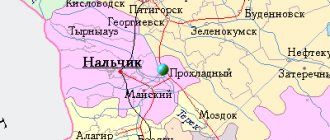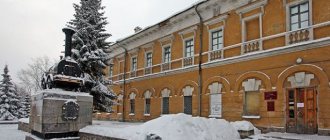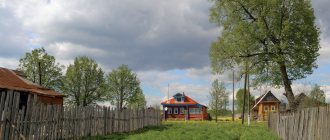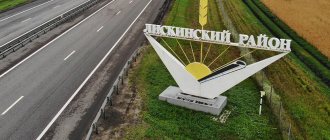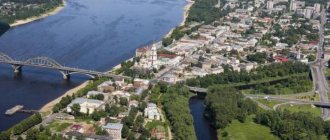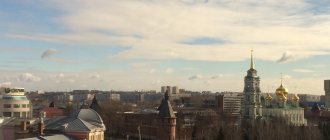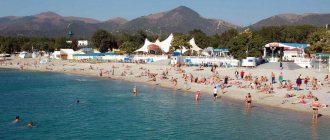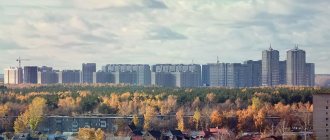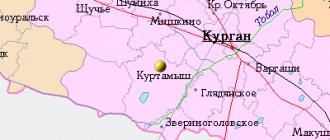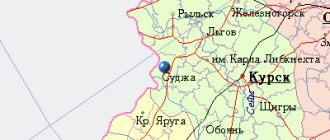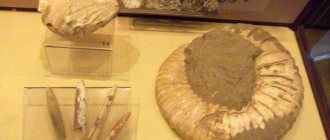Settlements
There are a huge number of settlements on the coast, the largest of which are:
- Zeya;
- Blagoveshchensk;
- Novokievsky Uval;
- Free.
In addition to these cities, along the coastline there are also:
- Zarechnaya Sloboda;
- Pinery;
- Nikolaevka-2;
- Alexandrovka;
- Nikolaevka;
- Oatmeal;
- Alekseevka;
- Berezovka;
- Algach;
- Mazanovo;
- Practical;
- Beloyarovo;
- Novonikolsk;
- Kamenka;
- Zagan;
- Zheltoyarovo;
- Novoandreevka;
- Pryadchino;
- Novopetrovka;
- Yegoryevka;
- Ust-Ivanovka;
- Vladimirovka;
- Semiozerka;
- Mukhinka.
Map
| Zeya: maps |
Zeya: photo from space (Google Maps) Zeya: photo from space (Microsoft Virtual Earth)
| Zeya. Nearest cities. Distances in km. on the map (in brackets along roads) + direction. Using the hyperlink in the distance , you can get the route (information courtesy of the AutoTransInfo website) | |||
| 1 | Magdagachi | 100 (167) | Z |
| 2 | Shimanovsk | 194 (304) | YU |
| 3 | Skovorodino | 219 (309) | Z |
| 4 | Tsiolkovsky | 226 () | YU |
| 5 | Tynda | 227 (484) | NW |
| 6 | Novokievsky Uval | 255 () | SE |
| 7 | Free | 268 (434) | YU |
| 8 | Seryshevo | 302 (480) | YU |
| 9 | Belogorsk | 324 (457) | YU |
| 10 | Vozzhaevka | 347 (472) | YU |
| 11 | Romny | 362 () | YU |
| 12 | Neryungri | 364 (712) | NW |
| 13 | Chulman (Republic of Sakha (Yakutia)) | 377 () | NW |
| 14 | Ivanovka | 377 (663) | YU |
a brief description of
The city is located in the north of the Amur-Zeya Plain, on the right bank of the river. Zeya (tributary of the Amur), 115 km northeast of the railway. Tynda station, 532 km north of Blagoveshchensk. River port.
Territory (sq. km): 40
Information about the city of Zeya on the Russian Wikipedia website
Historical sketch
The village of Zeya Warehouse was founded in 1879 in connection with the discovery of gold deposits in the Zeya basin as the base of the Upper Amur Gold Mining Company.
On March 12, 1906, from the settlements of Zeya Pristan and Zarechnaya Sloboda, the city of Zeya-Pristan was formed - the administrative center of the Zeya mining police district of the Amur Region.
Since 1913 - Zeya.
Municipal indicators
| Index | 2001 |
| Demography | |
| Number of births, per 1000 population | 8.9 |
| Number of deaths, per 1000 population | 16.4 |
| Natural increase (decrease), per 1000 population | -7.5 |
| Standard of living of the population and social sphere | |
| Average monthly nominal accrued wages, rub. | 3860 |
| Average housing area per inhabitant (at the end of the year), sq.m. | 18.5 |
| Number of preschool institutions, pcs. | 10 |
| Number of children in preschool institutions, thousand people | 1.1 |
| Number of daytime educational institutions (at the beginning of the school year), pcs. | 7 |
| Number of students in daytime educational institutions, thousand people | 4.4 |
| Number of doctors, people. | 168 |
| Number of nursing staff, people. | 430 |
| Number of hospital institutions, pcs. | 2 |
| Number of hospital beds, thousand units | 0.4 |
| Number of medical outpatient clinics, pcs. | 4 |
| Capacity of medical outpatient clinics, visits per shift, thousand units. | 1.1 |
| Number of registered crimes, pcs. | 916 |
| Persons who committed crimes were identified, persons. | 717 |
| Economy, industry | |
| Number of enterprises and organizations (at the end of the year), pcs. | 351 |
| Construction | |
| Volume of work performed by type of activity “Construction” (until 2004 - volume of work performed under construction contracts), million rubles. | 44.8 |
| Commissioning of residential buildings, thousand sq.m. of total area | 2 |
| Commissioning of residential buildings, apartments | 22 |
| Commissioning of preschool institutions, places | 0 |
| Commissioning of educational institutions, places | 0 |
| Commissioning of hospital facilities, beds | 0 |
| Commissioning of outpatient clinics, visits per shift | 0 |
| Transport | |
| Number of bus routes (in intracity traffic), pcs. | 5 |
| Number of passengers transported by buses per year (in intracity traffic), million people. | 2.5 |
| Connection | |
| Number of residential telephone sets of the city public telephone network, thousand units. | 3.9 |
| Trade and services to the population | |
| Retail trade turnover (in actual prices), million rubles. | 552 |
| Retail trade turnover (in actual prices), per capita, rub. | 18226 |
| Public catering turnover (in actual prices), million rubles. | 15.7 |
| Volume of paid services to the population (in actual prices), million rubles. | 80 |
| Volume of paid services to the population (in actual prices), per capita, rub. | 2639.2 |
| Volume of household services to the population (in actual prices), million rubles. | 6.2 |
| Volume of household services to the population (in actual prices), per capita, rub. | 204 |
| Investments | |
| Investments in fixed assets (in actual prices), million rubles. | 197.4 |
| Share of investments in fixed assets financed from budgetary funds in the total volume of investments, % | 13.2 |
Data sources:
- Regions of Russia. Main characteristics of the constituent entities of the Russian Federation: statistical collection. Goskomstat of Russia. - M:, 2003.
Economy
Zeya hydroelectric power station.
Timber transshipment plant, timber industry enterprise, bakery plant, dairy plant, etc.
Potatoes, vegetables, and fodder crops are grown in the Zeya region. They raise cattle, and in the Evenki village of Bomnak they raise deer.
Deposits of gold, iron and polymetallic ores, apatite, zeolite, copper ore, brown coal, building stone, brick and refractory clays.
Main enterprises
HYDROELECTRIC PLANTS
JSC "Zeyskaya HPP"
676200, Amur region, Zeya,
Offers:
Electricity generation
FORESTRY INDUSTRY
OJSC "Zeya LPK"
676200, Amur region, Zeya, lane.
Zapadny, 9 Offers:
Sawlogs, lumber, logging and removal of timber
Culture, science, education
Branch of the regional museum of local lore, museum of the history of the construction of the Zeya hydroelectric power station.
Museums, galleries, exhibition halls
Museum of the History of Construction of the Zeya Hydroelectric Power Station 676200, Amur Region, Zeya, per. Pionersky, 3 Phone(s): (42142) 2-1942
| Population by year (thousands of inhabitants) | |||||||
| 1913 | 7.4 | 1996 | 31.9 | 2008 | 27.0 | 2017 | 23.5 |
| 1931 | 6.0 | 1998 | 31.1 | 2010 | 26.7 | 2018 | 23.3 |
| 1939 | 8.9 | 2000 | 30.7 | 2011 | 25.0 | 2019 | 23.1 |
| 1959 | 7.1 | 2001 | 30.4 | 2012 | 24.7 | 2020 | 23.0 |
| 1970 | 16.7 | 2003 | 27.8 | 2013 | 24.4 | 2021 | 22.7 |
| 1979 | 29.0 | 2005 | 27.4 | 2014 | 24.1 | ||
| 1989 | 32.0 | 2006 | 27.3 | 2015 | 24.0 | ||
| 1992 | 32.4 | 2007 | 27.2 | 2016 | 23.7 | ||
Attractions
The main attraction is the Zeya Nature Reserve. It occupies over 800 km² and is almost entirely located in the mountains. It features amazing species of animals, as well as 650-plus varieties of vascular plants.
In the place where the Gromotukha River flows into the Zeya, there is a historical monument - the dwelling of the Osinoozersk culture. Artifacts referencing the Neolithic Gromatukha culture were also discovered there.
Hydrology
The total volume of Zeya's annual flow reaches 53.8 km3. Replenishment of the river's water volumes occurs mainly due to precipitation: 50–70% of the total annual flow comes from heavy rains. 10–20% is melt water, and 10–30% is water of underground origin. Due to the predominance of recharge from rainfall, the intra-annual distribution of Zeya runoff across seasons and periods is uneven. The spring-summer period accounts for 88.1% of the annual runoff, and for the autumn-winter season - 11.9%. The Zeya is characterized by high water content: the average long-term annual water flow at its mouth is 1940 m3/s, and the runoff module is 8.33 l/s per km2. The maximum depth of the river during low water reaches 60 m, the maximum width is 4 km. The drop in the watercourse of the Zeya channel varies along the flow: in the lower reaches it is 0.1 - 0.4 ‰, in the upper reaches it exceeds 15 ‰. The speed of the river flow is 4 – 6 m/s, in the lower reaches – up to 1.2 m/s. In winter, low temperatures and permafrost limit the flow of groundwater, so the river becomes low-water. Thus, during the spring flood, the water inflow near Zeya reaches 14,200 m3/s and above, and in winter it drops to 1.5 m3/s. The Zeya watershed also includes over 19,800 lakes, the area of which is 1021 km2.
Fauna
Typical representatives of the taiga fauna live in the surrounding area:
- wapiti;
- roe;
- Ussuri elk;
- bear;
- boar;
- wolf;
- wolverine;
- raccoon dog;
- sable.
The ichthyofauna of the reservoir also has something to boast about; it includes the following species:
- minnow;
- Amur gudgeon;
- grayling;
- pike;
- whitefish;
- taimen;
- chebak;
- flathead asp;
- mustachioed loach.
Fish and fishing
The Zeya River has a rich ichthyofauna. Many species of valuable fish live here, including taimen, large grayling and lenok. In addition to them, the river is inhabited by Amur chebak, silver crucian carp, vladislavia, pike, burbot, whitefish, etc. Despite the rich diversity of fish resources, legal industrial fishing is not developed on Zeya. And the spread of poaching, accompanied by the use of prohibited fishing means and massive fishing, leads to the depletion of the river’s natural reserves.
Ecology
There are 5 sand mining sites on the Zeya coast, but this does not save the river from river sand thieves. In the past, every year with the onset of cold weather, illegal activities began, which were destructive to the river’s ecosystem. As a result of such actions, the landscape of the coastline was actively changing.
Now the activity has been brought under control and mass thefts have stopped, but in remote areas it can still be seen. Of course, the effect will not be long in coming: slowly but surely the banks will begin to crumble, the river will become shallow, the groundwater level will drop, and the number of fish will decrease.
Zeya
(Amur region)
OKATO code:
10412
Founded:
1879
City since:
1906 City of regional subordination
Center:
Zeya district
The city was formerly called:
| Zeya Warehouse | 1879 | 1906 |
| Zeya-Pristan | 1906 | 1913 |
| Telephone code (reference phone) | |
| 41658***** | — |
Deviation from Moscow time, hours:
6
Geographical latitude:
53°44′
Geographical longitude:
127°15′
Altitude above sea level, meters:
220 Sunrise and sunset times in the city of Zeya
Tributaries
The river's catchment includes almost 30 thousand tributaries (and only 43 of them have a channel length of more than 100 km) and about 20 thousand lakes. Let us list the most significant tributaries of the Zeya River.
| Tributary name | On which side of the Zeya River is the branch located? | Channel length, km | Distance from the mouth, km |
| Selemdzha | left tributary | 647 | 284 |
| Gilyuy | right tributary | 545 | 680 |
| Tom | left tributary | 433 | 110 |
| Argi | left tributary | 350 | 939 |
| Dep | left tributary | 348 | 485 |
| Bryanta | right tributary | 317 | 791 |
| Urkan lower | right tributary | 304 | 588 |
| Tygda | right tributary | 264 | 447 |
| Current | right tributary | 251 | 946 |
| Urkan upper | left tributary | 234 | 878 |
| Mulmuga | right tributary | 234 | 837 |
| Ivanovka | left tributary | 176 | 21 |
| Kupuri | left tributary | 162 | 1073 |
Infrastructure
As of January 1, 2011, the city had 5 secondary schools, one of which has the status of a lyceum, and the other a municipal education center, 1 music school, a medical school (ZMMU), as well as the Pokrovsky Mining College (in the building of the closed vocational school No. 28) .
The city has cultural institutions: the Energetik sports center, the Rovesnik children's art house, a local history museum and the only museum of the history of gold mining in the region. There is a folk theater.
Population
| Population | |||||
| 1913[3] | 1931[3] | 1939 | 1959[4] | 1970[5] | 1979[6] |
| 7400 | ↘6000 | ↗8900 | ↘7119 | ↗16 684 | ↗28 980 |
| 1989[7] | 1992[3] | 1996[3] | 1998[3] | 2002[8] | 2003[3] |
| ↗31 955 | ↗32 400 | ↘31 900 | ↘31 100 | ↘27 795 | ↗27 800 |
| 2005[3] | 2006[3] | 2007[3] | 2008[9] | 2009[10] | 2010[11] |
| ↘27 400 | ↘27 300 | ↘27 200 | ↘27 000 | ↘26 805 | ↘24 986 |
| 2011[12] | 2012[12] | 2013[13] | 2014[14] | 2015[15] | 2016[1] |
| ↘24 978 | ↘24 665 | ↘24 367 | ↘24 082 | ↘23 966 | ↘23 734 |
Flora
The flora of the river changes from the upper reaches to the lower reaches of the reservoir. Thus, at the source, near which the Zeya Nature Reserve is located, about 650 species of plants and almost 60 species of mushrooms grow. Typical species are Mongolian oak, Amur linden, berry apple tree, variegated hazel, Japanese elm, Siberian mountain ash, brown willow, cloudberry, dwarf cedar, and dwarf birch.
Closer to the middle of the channel, the deciduous thickets thin out and give way to dark conifers, which are mainly formed by Ayan spruce.
And the closer to the mouth, the more meadows are scattered along the banks, and wetlands are often found.
